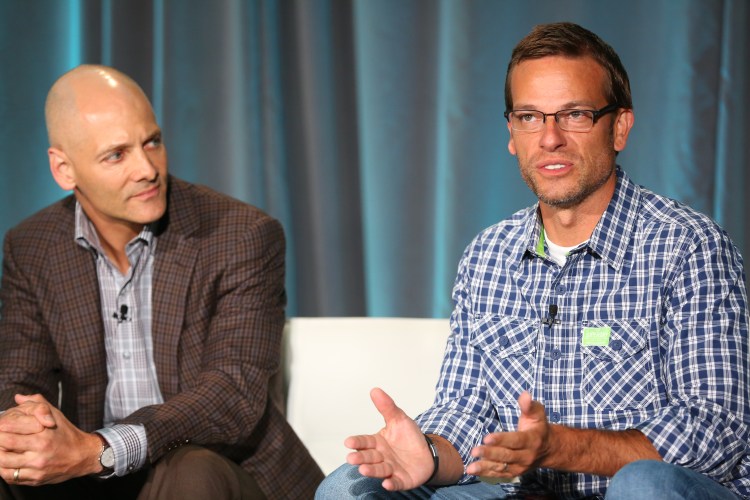Want smarter insights in your inbox? Sign up for our weekly newsletters to get only what matters to enterprise AI, data, and security leaders. Subscribe Now
SAN FRANCISCO — Good news, taquito fans: 7-Eleven is now “mobile-first and mobile-only.”
Yes, you still have to go to 7-Eleven stores for your Diet Coke, but 7-Eleven has at least switched its feedback process from dialing an 800 phone line to tapping its mobile app.
“When a company says it’s mobile-first and mobile-only, we are mobile-first and mobile-only,” said Michael Debnar, the leader of 7-Eleven’s Innovation Team, today at GrowthBeat 2014.
“So far we got 13,000 to 14,000 pieces of feedback in less than a month, and that is what we will get in a whole year with an 800 line.”
The convenience-store chain is also investing R&D dollars in its core product. Debnar revealed that, after a brief debut a couple of years ago, the company withdrew its Diet Coke Slurpees and sent the project back to the labs. “It’s a surprisingly hard problem,” Debnar said, “regarding making slushies out of diet sodas.”
7-Eleven is also attempting to learn from startups. It has an investment arm called 7-Ventures. Since 7-Ventures launched in August 2013, it has already invested in Belly, a customer loyalty startup; and KeyMe, a digital locksmith startup.
“We do strategic investments in startups. We do that so that we can learn, and they are usually adjacent to our business,” said Debnar. “And we are doing new business models and new category development. If it’s something so disruptive, and our core business can be kind of aligned with it, we will do business adventures,” which means investing in more experimental food and beverage startups.
More interestingly, 7-Eleven doesn’t even think itself as a traditional company that faces so-called disruption. Debnar compared 7-Eleven to Uber.
“I am a huge fan of two-sided marketplaces, you have on the one side a bunch of cars, and you have on the other side a bunch of people who need a car, and they are just the glue,” said Debnar. “We have close to 8,500 stores in United States. We can be that glue for a lot of things. For example we have Amazon lockers in some of our stores, [and] for example KeyMe is a company we have in our stores. We can actually become this two side marketplace just because we have a box that’s everywhere and we can connect people who need stuff to companies and services.”


